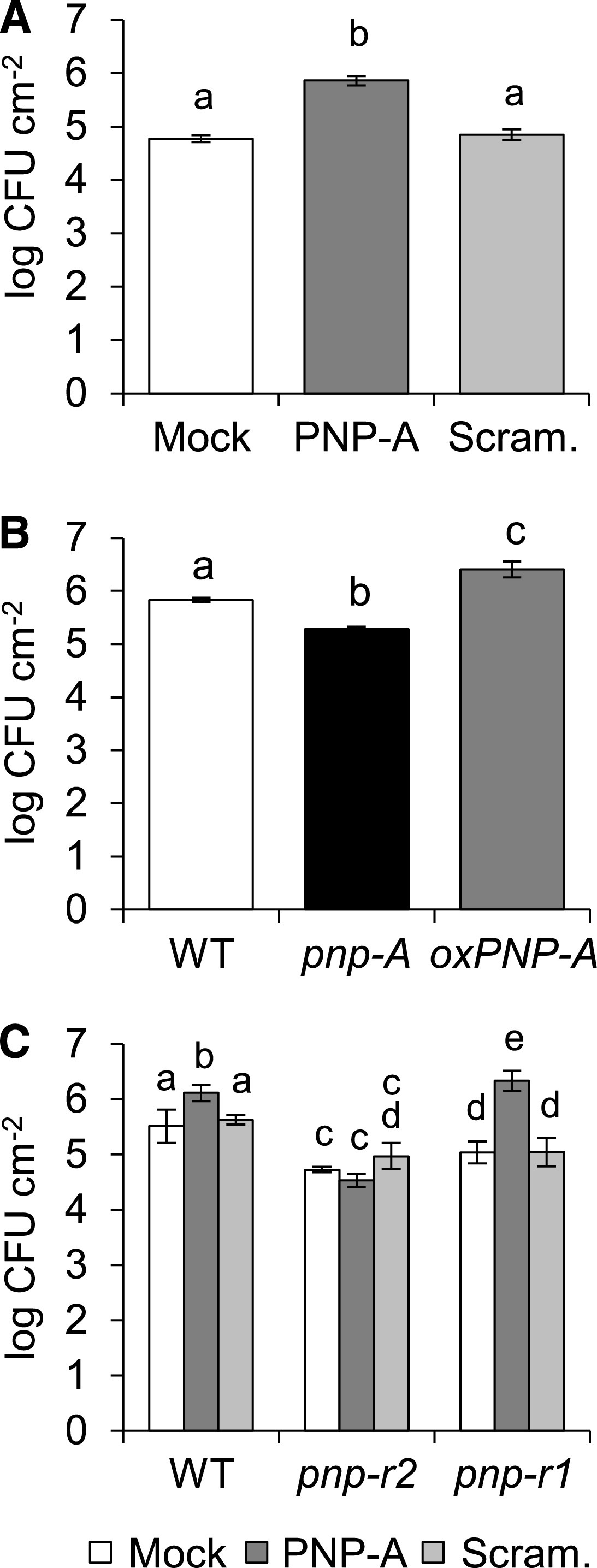Figure 8.
PNP-A Peptide Enhances Plant Susceptibility to P. syringae pv tomato DC3000 in a PNP-R2–Dependent Manner.
(A) to (C) Bacterial growths in 5-week-old, short-day-grown wild-type (WT) plants shown in (A), WT, pnp-A, and oxPNP-A #6-7 plants shown in (B), and WT, pnp-r2-2, and pnp-r1 plants shown in (C). Plants in (A) and (C) were pretreated with 5 μM synthetic PNP-A peptide (PNP-A) or scrambled peptide (Scram.) 6 h prior to bacterial infiltration. Three days later, bacteria were extracted from three different leaves of four independent plants and incubated at 28°C for 2 d to evaluate growth. Bars represent se of n = 4. Lowercase letters indicate statistically significant differences between mean values (P < 0.01, one-way ANOVA with post hoc Bonferroni’s multiple comparison test; Supplemental Data Set). These experiments were repeated thrice with similar results. CFU, colony-forming units.

